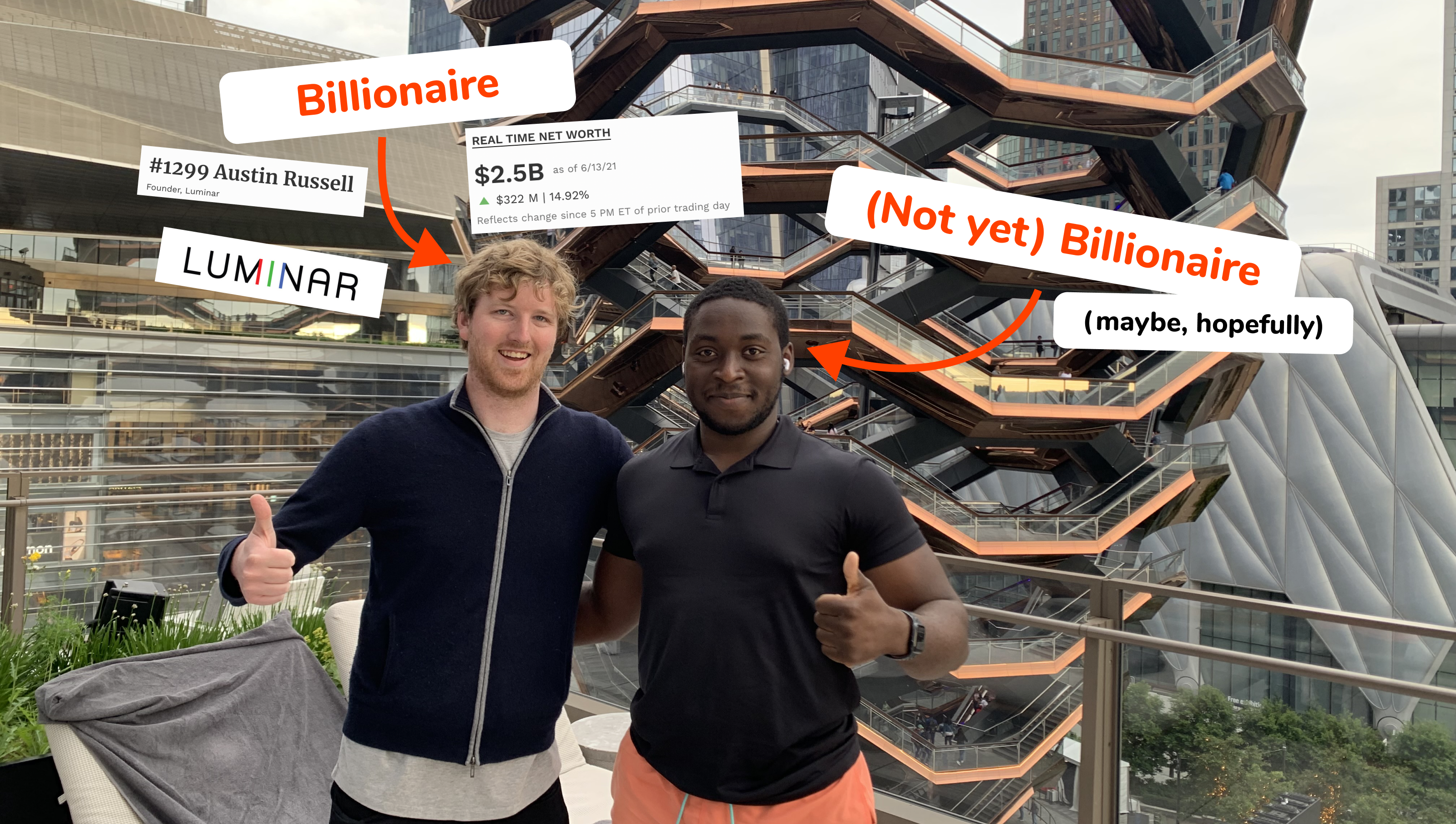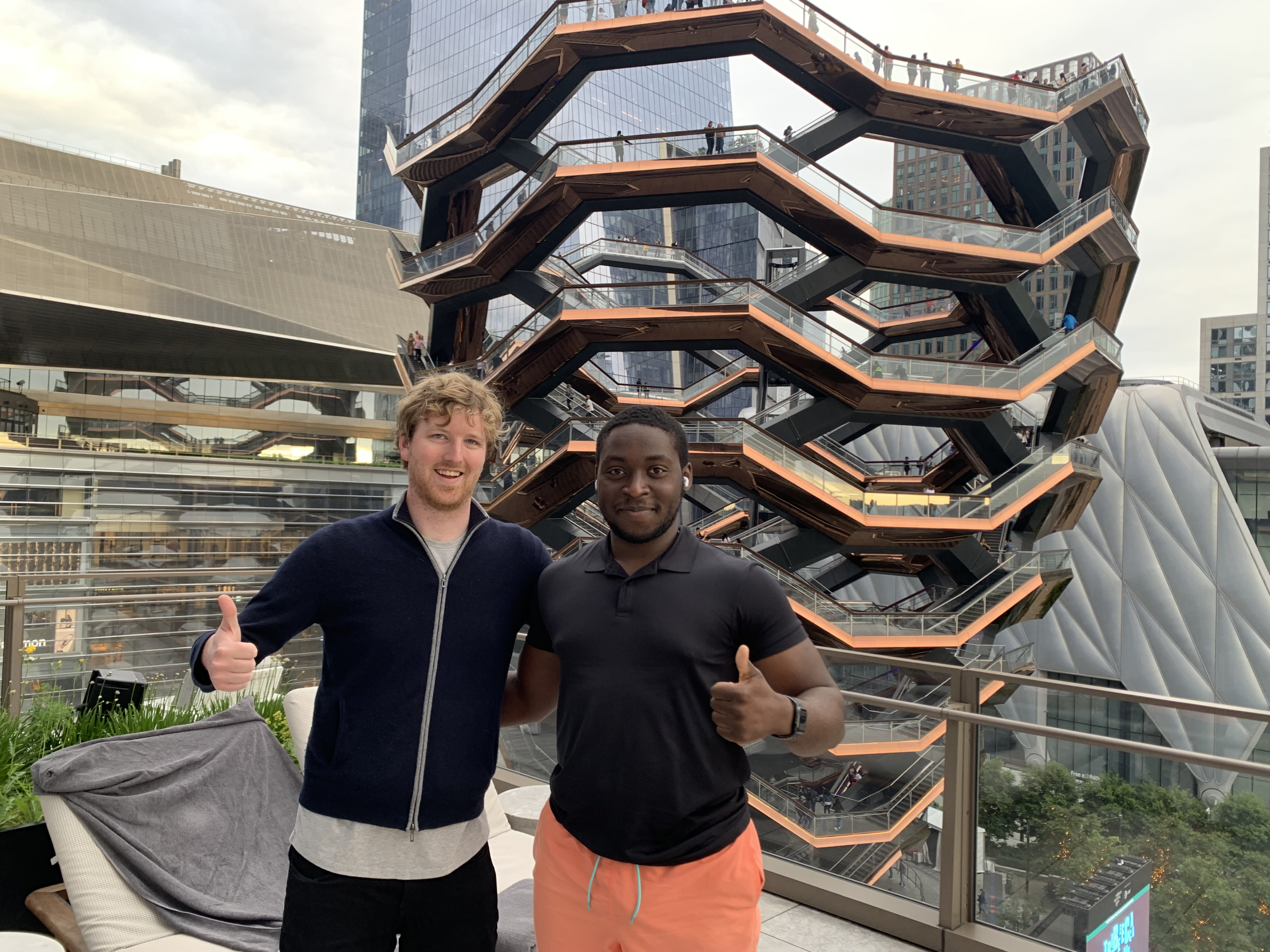
I ran into him at Equinox.
At first, I thought it was just a guy that looked like him. But after extensive googling, I was 90% sure it was Austin Russell.
After working up the courage, I walked up to where him and two others were sitting.
I just wanted to say hi and that I admired what he’s done.
There was an older man and older woman next to him. I thought they were his mom and dad. Turned out they were his VP of Communications and VP of Investor Relations (lol).
After I got to say hi, I went back to little corner to resume work. Later, one of his VPs came up to me and said that before they’d leave for a business dinner, he’d get a picture of me and Austin.
And before they left, we got a picture together.

i asked him 2 questions
After the picture, I wanted to ask him a question. You can always learn something from someone— especially it that someone starts laser company at 17 and becomes a billionaire at 25.
1. What’s something interesting you learned since starting Luminar?
A broad question, but it’s a question I ask my guests on PM News all the time. It usually brings at least a small golden nugget out of them.
What he said was basically that it’s interesting what happens when you go deep on a specific domain or problem space and try to become a sort of expert at it.
If you keep at a problem or anything with expertise and focus and you let compounding do its work, good things will happen.
Knowing his background, I can see how that played out for him:
He skipped high school to work with lasers at UC Irvine. Then, he dropped out of college mid freshman year to start, essentially, a laser company…at 17. Expertise.
Then 8 years later, he takes that company public and becomes a billionaire. Focus and time.
(I’d also add in Naval’s aphorism for what you work on is more important than how hard you work. Going deep on lasers in a time where automatous vehicles and LIDAR tech are on the rise definitely helps, in Austin’s case.)
His answer reminded me of new quote that I love, ascribed to both Andrew Carnegie and Mark Twain:
“Put all your eggs in one basket, and watch that basket very carefully”
2. How do I get to a billion (dollars)?
I asked this somewhat jokingly because I’ve read Fooled by Randomness by Nassim Taleb and I understand that it’s easy to let the narrative of making billions in tech fog up the actual probability.
But, I had to ask.
I wasn’t looking for any “secret” because I know there aren’t any. I wanted to understand how he framed his accomplishment. What mental model(s) he was working under. How does he see it in retrospect.
His response was basically: “ya know, to get to 1 billion (the number), you only need to 2x 10 times from 1 million.”
An interesting answer.
I liked that he broke it down into a simple math equation.
Take 1,000,000 and double it ten times.
- 2,000,000
- 4,000,000
- 8,000,000
- 16,000,000
- 32,000,000
- 64,000,000
- 132,000,000
- 264,000,000
- 528,000,000
- 1,056,000,000 ←
I don’t have a million dollars (yet). But for me, his answer translated to:
- Look for opportunities where you can 2x your income/revenue/etc
- Aim for at least 2x improvements as many times as you can
I already have a tendency for working on projects. So this answer got my gears turning and got me thinking about ideas and problem spaces where I could build projects that have the potential for 2x improvements and growth over time.
(Chance encounters like this make me justify my Equinox membership even more.)